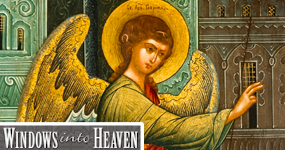“How do we get the barriers between communities dissolved?” Kenneth Reveiz says. “Physical space is a great way of doing that.”
At first blush, the New Haven Free Skool appears chaotic. Art-works-in-progress are strewn about the premises. Class sessions happen sporadically, are completely free of charge and are open to just about anyone. All teachers are volunteers and the offerings are scattershot. There’s the practical, like Web Design or Bike Maintenance, and the more abstract, like Music Video as Cultural Unit or “Take Note,” in which students simply sit in the back of a classroom, occasionally moving about, simply observing the space in which they exist, taking detailed notes about what they experience.
Underneath the seeming chaos, though, is a mission broad enough to unify everything the experimental school has to offer. The Free Skool, a project of the People’s Art Collective of New Haven (PAC), brings disparate communities together by providing a place for them all.
sponsored by
For Free Skool co-founder Reveiz and his colleagues, putting on a wide swath of free classes, like Backyard Poultry Raising and Black History Films, is about inviting anyone, regardless of social or economic situation, to participate. The communal space has become a symbol of what’s possible: more tolerance and understanding, and cooperation. “Ideally, the Free Skool would be something the whole city could have some kind of claim over,” Reveiz says.
Reveiz explains that the school is not keen on lengthy lectures, instead encouraging its all-volunteer faculty to keep pontification brief and maximize conversation. The idea is to produce a dynamic give-and-take between student and teacher and student, where knowledge becomes less like a commodity and more like a shared gift. Some former students have been inspired to share in a more proactive way, pitching ideas for new classes of their own.
The place itself is small yet versatile, with a worn, red-painted cement floor. There’s a digital projector, and handmade desks fold up into the walls and lock into latches, like Murphy beds. Classes involving yoga or movement can then use the entire space.
For funding, the Free Skool has relied partly on donations and a successful crowdfunding campaign waged on the website Indiegogo, in which the school raised $2,825 for its summer session. The project has also benefited from a Mayor’s Community Arts Grant and a grant from The Community Foundation for Greater New Haven.
sponsored by
Unfortunately for the Free Skool, the People’s Art Collective and the PAC-sponsored “LGBTQ* Youth Kickback,” which Reveiz calls a “safe space for queer youth across the city,” the future is uncertain, at least in terms of where they’ll all be housed. This past June, Middletown-based Centerplan Companies received the go-ahead from the New Haven Board of Zoning Approval to build a 160-unit apartment complex, including a 138-space parking garage and 20,000 square feet of retail space. The large project will sit along College Street between George Street and Crown, which means the building the Free Skool shares with PAC and the LGBTQ* Kickback will be demolished.
But it doesn’t mean Skool is out for good. “The loss of the space could be an opportunity to carry out the same mission elsewhere,” Reveiz says. He still wants the classrooms to be as diverse as possible, appealing to people in all neighborhoods, especially those who don’t have access to extra-curricular or non-traditional education and those who weren’t model students in their youth. “The Free Skool, as an idea,” he says, “alienates people who don’t like school, which is part of who we’re trying to reach.”
Non-students seem to be warming to the idea, though. According to Reveiz, the school’s first session attracted about 60% Yale students and 40% non-Yale locals of all stripes, and that, since then, the representation of the latter contingent has increased significantly.
Another challenge, he says, is that the Free Skool “doesn’t translate well into other languages. I’d like to rethink that. I’d like to make it inclusive.”
How much more inclusive could the Free Skool be? If and when it finds a new home, we may find out.
New Haven Free Skool
at the People’s Arts Collective of New Haven
212 College St, New Haven (map)
(646) 409-6631 | PACNewHaven@gmail.com
www.newhavenfreeskool.org
Written and photographed by Jake Goldman.










